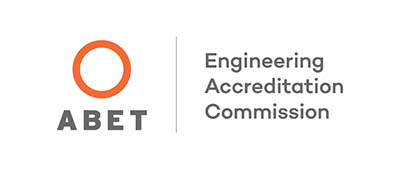Small Classes, Hands-On Experience
Our Bachelor of Science degree program in electrical engineering combines rigorous theoretical study with practical, hands-on experience.
Students thrive in an environment of challenging courses, caring and experienced faculty and small class sizes.
Our program's innovative curriculum includes electrical engineering courses in the freshman year so that students can develop an early understanding of their chosen profession.
Additionally, our distinctive program provides its graduates with outstanding preparation for professional practice, graduate school and engineering licensure.
Courses & Topics
Build Professional Ties Through Real-World Projects
The electrical engineering program at Point Park culminates in a two-course senior design experience in which students form interdisciplinary teams to propose, build and document real-world engineering projects ranging from software applications to solar arrays.
Many of these projects are sponsored by local engineering firms such as Eaton and GAI Consultants, lending a high level of accountability and realism to the experience and helping students to build professional ties to potential employers.
View some of our engineering senior student projects.
Minor in Theatrical Engineering
Point Park's new theatrical engineering minor is an immersive, innovative program that provides students majoring in Electrical Engineering the opportunity to study the artistic and technical aspects of entertainment and performance, preparing them for in-demand careers in a variety of spaces, including production companies and equipment manufacturers.
Faculty have carefully designed the program to allow completion of the major and minor in four years with some summer and/or online coursework.
Admission Requirements
In addition to meeting the general university admission criteria, applicants must meet the following program-specific requirements:
- Mathematics courses: A minimum of three years (three units) of college preparatory mathematics in high school, including geometry, algebra and trigonometry and providing sufficient background for the study of a first course in calculus or a minimum of five semester credits of course work in college-level algebra and trigonometry, providing sufficient background for the study of a first course in calculus.
- Natural science courses: A minimum of one year (one unit) of college preparatory physics or chemistry in high school or a minimum of six semester credits of introductory, algebra-based college-level physics or chemistry.
- Grades: An average of B or better in the mathematics courses specified above and an average of B or better in the natural science courses specified above.
Students who are not prepared to take Calculus I during their first term can still be admitted upon review by the electrical engineering faculty with the understanding that they will need to take College Algebra (MATH 180) and Trigonometry (MATH 185) during their first year.
Transfer Credit
Subject to the review of the faculty, incoming transfer students may receive credit toward their degree for comparable course work taken at other institutions prior to matriculation at Point Park. Agreements with other local institutions also allow current Point Park students to register for courses that are offered elsewhere in the Pittsburgh area, giving them the opportunity to pursue subjects not taught on campus during a particular term.
About Engineering at Point Park
Career Options
Electrical engineers are among the most prolific, versatile and respected practitioners in the modern workplace, and a degree in electrical engineering is among the most highly valued of all professional credentials. This degree prepares graduates to work productively throughout the engineering enterprise and to further their education in master's and doctoral programs.
It also provides graduates with excellent preparation for the study of law, medicine, business and other professions that demand both creativity and mathematically-based analytical skills.
Electrical engineers assume a wide variety of positions in research, design, test, sales and support anywhere electricity is put to work for the good of society. Ranging from tiny start-up firms to multinational corporations and government agencies, typical areas of practice include:
- Electrical power
- Computers
- Electronics
- Communications in environments
Learn more about the electrical engineering profession.




